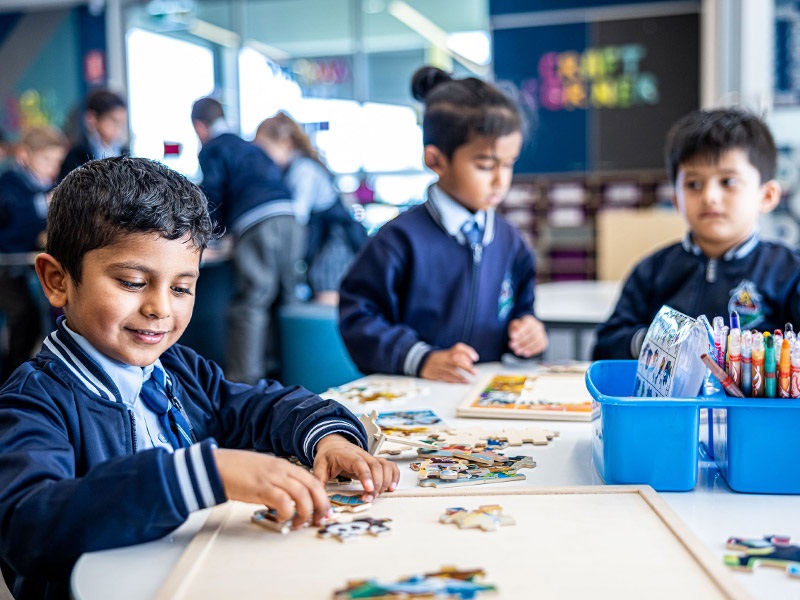Supporting School-Community Collaborations

American schools can’t manage to be used in isolation. Consequently, many school-linked and college-based health insurance human service programs have sprang up across the country. Schools may also be contacting parents as well as the community to boost students’ educational foundations. Condition education agencies result in supporting several of these school-community partnerships, mainly for just two reasons: they seek to be sure the educational success of scholars (collaboration being a method to that finish) and, next, they view themselves as key partners in bigger, broader-based efforts to be sure the overall wellbeing of youngsters and families. The finest levels of condition government have transported out collaborative efforts regarding children and families. The goal is always to create a kind of comprehensive local services delivery having a concentrate on community-directed initiatives. Your time and energy has dedicated to children placed from condition and people susceptible to at home placement. While everyone concurs that collaboration could be the call throughout the day and necessary to make the systems that support children, youth, in addition to their families, you can still find many barriers and challenges to get overcome, including:
– Bureaucratic and cultural variations between education and collaborating agencies
– Pressure on educators to get accountable for discrete educational results, and
Time, money, and frequent contact it should construct working relationships and collaborations.
Whatever the barriers, support for any kid and family agenda within the finest levels may help collaborative efforts in communities. An effective structure, just like a children’s “cabinet,” can facilitate and establish collaboration becoming an expectation. While high-level condition support is important, collaboration within the school-community level is evenly important. The caliber of government agency support for local partnerships teeters round the dependence of several factors. Despite such bureaucratic challenges, however, condition education agencies are increasingly more supporting and with collaborations within the school-community level. It’s as of this grassroots level that various and interdisciplinary groups of pros works together to assist children and families. The increase in collaborative activities lately is evidence of educators’ recognition that they may forget about are employed in isolation once they desire to guarantee students’ success at school. Despite difficult family and community conditions, some children flourish in school plus existence. Since they have persevered through severe, frequently lengthy lasting and multiple challenges, they are referred to as “resilient.” Whenever we can determine what creates such resilience in a few children, we’re able to possibly enhance such increase in others.

A classic 25-year study of mental resilience adopted infants born in Florida in adverse conditions, including roughly 350 who’ve been considered at high-risk. Roughly one-third of people children shown no problems whatsoever, despite the fact that another two-thirds had problems, by their mid-30s almost all grew to become constructively motivated and responsible adults. Among their distinguishing encounters as children will be a extended-term, close relationship getting a caring, responsible parent or other adult. Other resilience studies have happened of youngsters of psychologically ill parents and teenage moms, individuals in promote care, and people who had been maltreated, chronically ill, and/or delinquent. Of individuals children, most who achieve adult success have extended-term connections with competent adults, religious belief, and perceptions of themselves as worthy and competent. Parents or mentors of those children increase the risk for child feel helpful and valued. They exhibit competence that kids can emulate, and offer guidance and constructive feedback in regards to the child’s progress. Furthermore, they provide encounters that build competence and confidence. But modifications in American families, for instance more teen moms, divorce, separation, and “latchkey” children, make resilience-building harder. In a few areas, the stabilizing influences of spiritual and social institutions also provide declined. Regrettably, educators haven’t much impact outdoors the school on early childhood development. Urban educators face still greater challenges. Their schools are often large and sometimes serve poor and highly mobile families, that makes it difficult to achieve to families and communities. Studies claim that despite such difficulties, educators can extend themselves to market educational and mental resilience. First, the educational practices shown to boost achievement may be used to assist students succeed not only to school, but furthermore to learn the skills which will make for fulfillment around. Second, educators can get together to improve conditions in communities that promote mental well-being. No multiple children in four born of alcoholic parents becomes an alcoholic. Which are the general traits of youngsters who overcome doing this along with other risks? Study has identified several key competencies of resilient children. They include:

